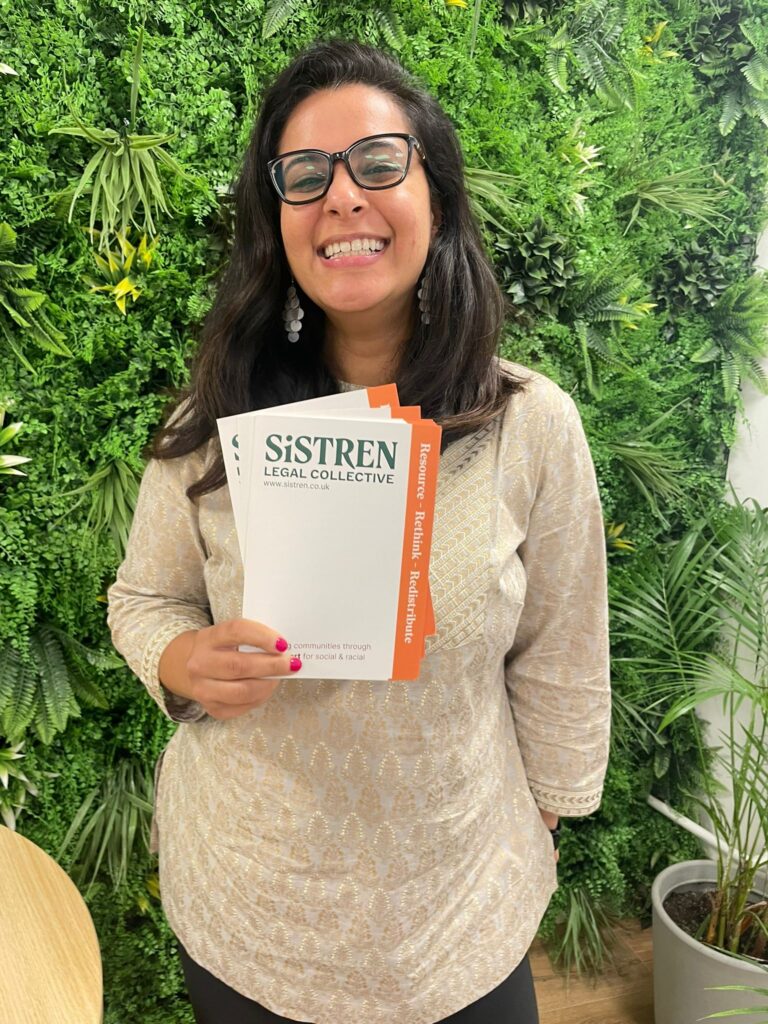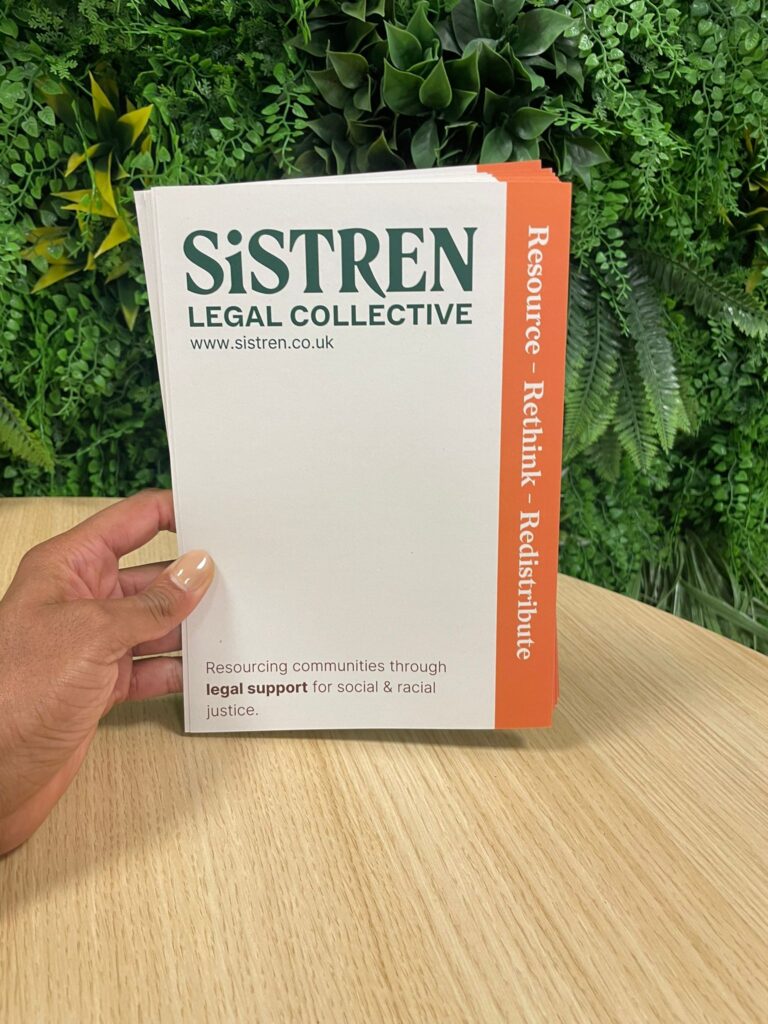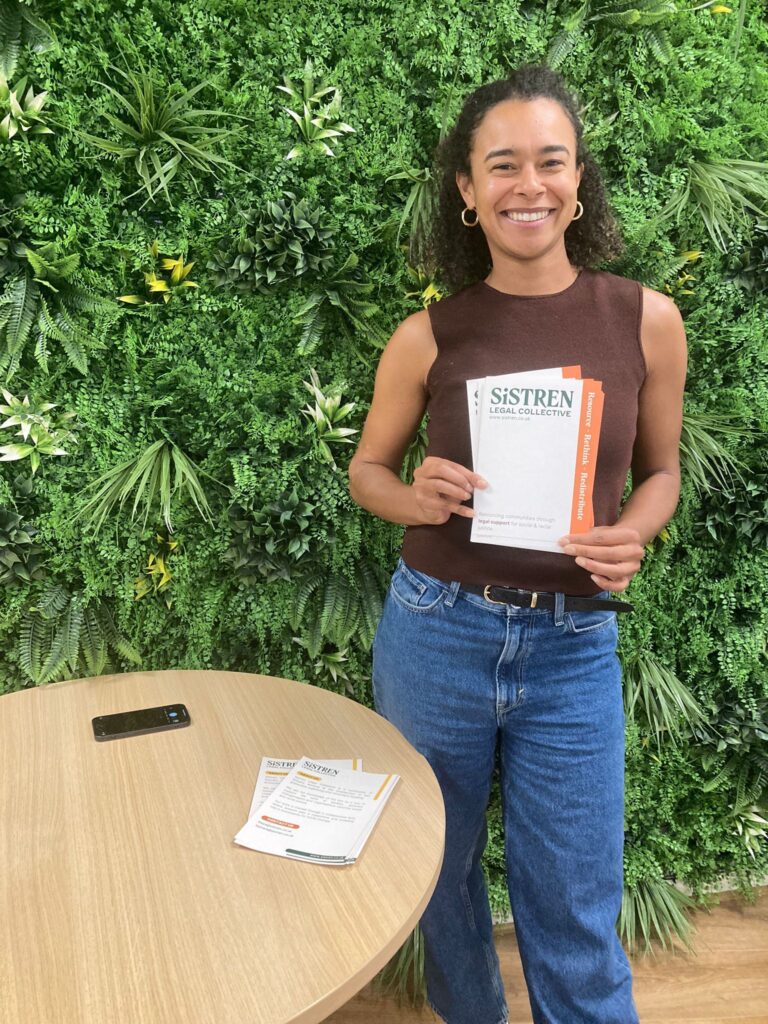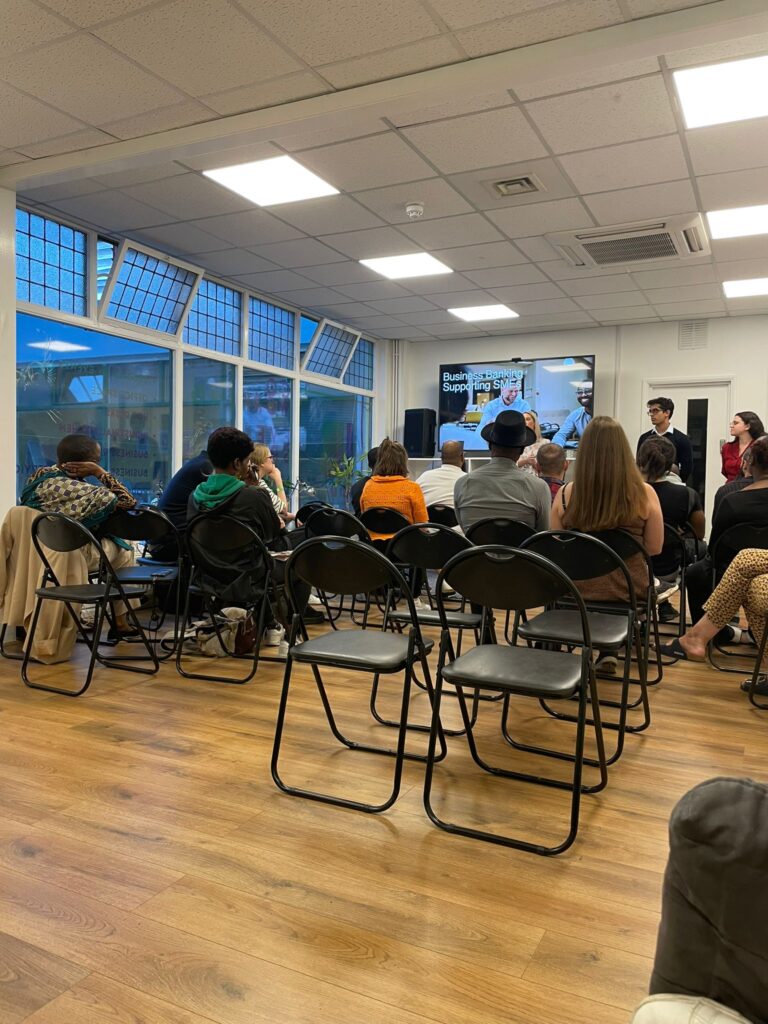Impact Brixton is a hub for entrepreneurs, freelancers, and creatives in the heart of Brixton. As well as providing a diverse co-working space and a strong sense of community, Impact Brixton provide registered office services, which allows companies to use Impact Brixton’s address as their own registered office address. This is useful for providing a centralised business address for entrepreneurs. It’s also super useful for people who don’t want their personal addresses appearing on the register of companies once they set up their own business or social enterprise.
We were first introduced to Impact Brixton by our friends at Centric. We loved the space and how welcome we were immediately made to feel and have since made it an occasional home for Sistren.
Impact Brixton hosts a number of events and informational sessions for their members. On Friday 29 September 2023, they hosted an event on setting up a business or social enterprise. Keya & Samara were there, hosting a pop-up legal clinic, speaking to people who wanted to set up non-profit organisations and social enterprises, talking through different legal forms and the processes for setting up your chosen form.
HSBC talked through the process of setting up business bank accounts. QLegal were also there, talking through the legal support available for start-up ventures.
As always, we learned a huge amount through the event. As lawyers, we’ve often been to workshops where ‘professional advisors’ are positioned as the ‘experts’ in the room. We’re working to break down that dynamic, being really honest about what we know and what we don’t and acknowledging that we’re part of an exchange of information where we hold certain types of knowledge (legal knowledge about how to set up organisations) and the people we meet and who come to us for support hold different kinds of knowledge, which we can learn from.
Some of the types of knowledge that others shared on the evening were:
- Practical – for example, we learned that it often takes much longer to open an account for a charity and many banks don’t open charity bank accounts at all. For many banks, the more trustees a charity has, the longer it takes to open an account due to the amount of information required from each trustee.
- Experiential – for example, we learned some members of the community had experienced difficulties opening a bank account for a CIC and that many banks do not open bank accounts for CICs. Anecdotally, some of the banks that others mentioned had successfully opened accounts for CICs were [Metro Bank, Cooperative Bank, Charity Bank and HSBC].
- Linguistic – for example, language that ‘professional advisors’ take for granted or think of as basic is in fact a huge barrier to people understanding what’s being said. ‘Limited company’, ‘Shares’, ‘CIC’, ‘SMEs’, ‘turnover’, ‘assets’ and ‘liability’ were some of the words that came up.
- Process – navigating the funding and non-profit world can be exhausting for many and often feels like someone is holding a metaphorical bag over your eyes. For many people, not knowing the ‘language’ of funders and funding can be a real barrier to expressing your ideas and community purpose or value.
Our hope is that by bringing together different types of knowledge (including legal knowledge) through an exchange of information, we’re all collectively generating knowledge that is useful and serves the wider community.
Here are some of the questions and topics that came up during our discussions on the night:
I’m thinking about setting up an advocacy-based organisation. I’ve heard the Charity Commission comes after organisations doing advocacy. Here are some of the questions I have:
- Should I be a charity?
- What are the other options available to me?
- I will need grant funding. Can I get that without being a charity?
- It’s just me setting this organisation up. Do I need to have other people involved? Do I need a board of trustees?
- What are the risks to me personally as a director? Can they come after my personal money and assets if something goes wrong?
I’m planning to set up a business but I’m not doing it to make a profit – I’m doing it for the community. Here are some of the questions I have:
- I’ve heard about a community interest company (CIC). Is that the right legal structure for my organisation?
- Should I be a company ‘limited by shares’ or ‘limited by guarantee’? What’s the difference?
- I’m not trying to make lots of money by doing this work, but I need to make a living. Can I get paid if I set up a CIC?
- Can I be the only director of the CIC?
- Do I need to have a board of directors with other people?
- Can I get grants for my organisation if it’s a CIC?
- Will I need to pay tax?
- If I provide my services to another organisation, can I invoice as the CIC? Or do I have to invoice as an individual?
- My partner is on a student visa. Can they be a co-director of the CIC?
I am Eritrean. There are some organisations in my community that need more information. Where can they get help if:
- They’re a very small charity and trying to figure out things like governance
- They’re trying to set up a CIC – where can they get more information on how to do this?
I’ve been working informally in the community for a long time now, hosting events and supporting the community. I want to formalise this work and apply for funding.
- How do I pay myself for my time?
- How does this work alongside my other paid work or consultancy roles?
- How do I pay my friends / supporters to work with me?
- How do I ensure the community is resourced properly for the work it does?
Here are some of the things we learned from our discussions (because we’re always learning too!)
There is no concept or idea that is too small to bring to life Knowing where and how to start is not something to take for granted – there are so many different options which can be confusing and overwhelming. Giving people time and space to talk and ideate is really important.
We were used to people coming to us in the law firm with ‘fully-formed’ ideas and a clear sense of what they wanted to do. We realise that ideas and community don’t always come in neat packages for lawyers to action. It can be messy, emotional, frustrating and joyful and sometimes having the space to talk and share your ideas is incredibly powerful and liberating in taking the next step. We’re trying to be the lawyers that will be a part of that frustrating, joyful journey by collaborating with you to figure out a path through all of the mess – not by advising you on what to do.
In return for sharing our knowledge at the pop-up legal clinic, Impact Brixton are sharing their workspace with us, by providing us with access to their shared office space on a short-term basis. This allows us to enter into an exchange of resources, establishing a collaborative relationship which has been of mutual benefit. It’s been good to find ways to trial an exchange of resources (knowledge for office space), rather than the traditional ‘payment for services’ model, and we’d love to find other ways to trial similar models.




